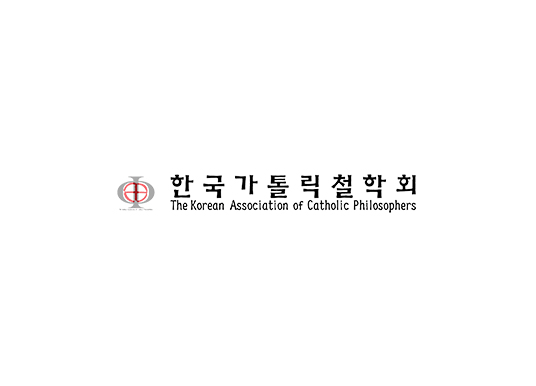‘철학자의 외투’를 입은 그리스도교 -순교자 유스티누스의 그리스도교 철학 관념-
Christianity in the Philosopher’s Cloak -Justin Martyr’s Conception of Christian Philosophy-
송유레
경희대학교
가톨릭철학
2023, vol., no.40, pp. 37-70 (34 pages)
한국가톨릭철학회
1. 들어가는 말: ‘그리스도교 철학’의 가능성과 의미
2. 유스티누스의 선택
3. 유스티누스의 회심
4. 유스티누스의 변론
5. 맺음말: 보편 철학의 전망
초록
그리스도교 철학이 있을 수 있는가? 이 질문에 대답은 ‘그리스도교’와 ‘철학’을 제각기 어떻게 이해하는가에 달려 있다. 신앙과 이성을 대립시키고, 철학을 순수한 이성의 작업으로 이해하는 한, 철학에 그리스도교 신앙이 개입할 여지는 없어 보인다. 하지만 신앙과 이성, 신학과 철학의 스콜라주의적 이분법적 틀 안에서 그리스도교 철학의 가능성을 둘러싼 논쟁이 지속되어 왔다. 본 논문에서는 이러한 논쟁의 틀에서 벗어나 대안적 시각에서 그리스도교 철학의 가능성을 모색하고자 한다. 이를 위해 우리는 초기 그리스도교 역사상 처음으로 그리스도교를 철학으로 제시한 순교자 유스티누스에 주목할 것이다. 우선, 그리스도교의 호교론적 배경을 간략히 소개하며 유스티누스의 입장을 자리매김할 것이다. 사실, 유스티누스는 그리스도교와 철학을 배타적인 선택지로 제시하며 양자택일을 요구하는 입장과 달리 그리스도교를 철학으로서 선택했다.
이러한 선택을 이해하기 위해 『유대인 트뤼폰과의 대화』에 제공된회심의 서사에 주의를 기울일 것이다. 유스티누스에게 그리스도교로의 회심은 철학과의 완전한 결별이 아니라, 한 철학에서 다른 철학으로의 회심, 즉 ‘철학적 회심’이었음이 드러날 것이다. 행복을 위한 지혜를 갈구하는 그리스적 철학이 그를 그리스도교로 이끈 동력이었음이 논증될 것이다. 다음으로 유스티누스가 이성에 호소하면서 그리스도교를 변론하는 『제 1호교론』과『제 2호교론』을살펴 볼 것이다. 이 호교론적 맥락에서 그리스도교는 고대 그리스의 철학 관념에 따라 ‘이성에 따라 사는 방식’으로 규정된다. 이 때 그리스도교는 피에르 아도가 말한 ‘삶의 방식으로서의 철학’으로 이해된 것이다. 물론, 유스티누스는 그리스도교를 신적인 이성에 따르는 철학으로 내세웠다. 하지만 그는 인간 이성과 신적 이성이단절되어 있다고 보지 않았다. 그에 따르면, 모든 인간이 신의 보편적 이성을 분유한다. 나아가, 그는 그리스도가 육화한 신적 이성 이라고 주장했다. 요컨대, 유스티누스의 그리스도교 철학은 그리스도로 강생한 이성 자체가 계시한 진리에 따라 사는 방식이다. 이렇게 이해된 철학에서 계시와 논증, 신앙과 이성은 양립 불가능한 것이 아니라, 상호 연계되어 있다. 이런 식으로 유스티누스는 참조할만한 그리스도교 철학의 한 예(例)를 남겼다.
Can there be a Christian philosophy? The answer to this question depends on what we mean by ‘Christianity’ and ‘philosophy’ respectively. So far as faith and reason are opposed and philosophy is understood as a rational enterprise, there seems to be no room for Christianity to be involved in philosophy.
However, debates over the possibility of Christian philosophy have continued within the scholastic dichotomy of faith and reason, theology and philosophy. In this paper, I try to explore the possibility of Christian philosophy from an alternative perspective, outside the scholastic framework of the debate. For this purpose, I draw attention to Justin Martyr, who presented Christianity as a philosophy for the first time in the history of early Christianity. First of all, I briefly introduce the apologetic background to Christianity in the 2nd century in the Roman Empire and situate Justin’s position. Unlike the position that presented Christianity and philosophy as mutually exclusive options and demanded one to choose either one or the other, Justin chose Christianity as philosophy. To understand his choice, I investigate the narrative of conversion provided in his Dialogue with Trypho the Jew. It is shown that conversion to Christianity for Justin was not a complete break with philosophy, but a conversion from one philosophy to another, which is a ‘philosophical conversion’. It is argued that Greek philosophy, being a pursuit of wisdom for happiness, was the driving force that led him to Christianity. Next, I turn to Justin’s apologetic strategy in Apologies I-II, a central aspect of which is the appeal to reason. In this connection, Christianity is defined as ‘a way of living according to reason’, following the conception of philosophy in antiquity. Here, Christianity is understood as ‘philosophy as a way of life’, as Pierre Hadot pointed out. In fact, Justin presented Christianity as a philosophy according to divine reason. However, he did not think that human reason and divine reason were disconnected. For all humans share God’s universal reason, which is reason itself. Furthermore, he claimed that Christ is the incarnated divine reason. In short, Justin’s Christian philosophy is a way of living according to the truth revealed by reason itself, incarnated in Christ. In philosophy thus understood, revelation and argument, faith and reason are not incompatible, but interrelated. In this way, Justin left an example of Christian philosophy, which is worth referring to.

